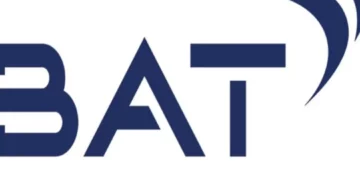The Nigerian Upstream Petroleum Regulatory Commission (NUPRC) has reported a significant increase in rig activity, rising from 11 rigs before the Petroleum Industry Act (PIA) to 42 rigs currently in operation. This surge reflects growing investor confidence and a revitalised upstream sector, driven largely by the Commission’s enforcement of the “Drill or Drop” policy.
However, despite the uptick in rig count, Nigeria’s crude oil production experienced a decline in May 2025. The NUPRC reported that crude oil output dropped to 1,452,941 barrels per day (bpd) in May, down 2.2 percent from 1,485,700 bpd in April. Including condensate, total production fell from 1.68 million barrels per day in April to 1.65 million bpd in May. This output level represents 97 percent of Nigeria’s OPEC quota of 1.5 million bpd.
The “Drill or Drop” policy mandates that oil and gas operators must commence production within a specified timeframe or relinquish their licenses. This regulatory move aims to revitalise the oil sector, ensure optimal use of assets, and boost government revenue by preventing operators from holding onto idle oil fields. The policy is a key part of the broader reforms under the PIA, which also includes automation of regulatory processes to reduce bureaucratic delays and improve operational efficiency across the sector.
During a recent strategic engagement in Abuja, a delegation from the Independent Petroleum Producers Group (IPPG), led by its chairman Abdulrazaq Isa, commended the NUPRC for its regulatory reforms and role in facilitating the divestment of upstream assets by international oil companies (IOCs) to indigenous operators.
This transition is seen as pivotal in reshaping Nigeria’s energy landscape and creating opportunities for local companies to scale up operations.
NUPRC’s chief executive, Engr. Gbenga Komolafe, reiterated the Commission’s commitment to creating an enabling business environment and highlighted the positive impact of the reforms, including the “Drill or Drop” policy. He emphasised that these policies have started to yield tangible results, contributing to increased rig activity and a more transparent, accountable upstream sector.
The daily average production for May was 1,657,435 barrels per day, consisting of 1,452,941 bpd of crude oil and 204,493 bpd of condensate. The lowest and peak combined production in May were 1.61 million bpd and 1.81 million bpd respectively.
The slight dip in production is attributed to factors such as corporate governance realignments and maintenance activities by major operators. Nonetheless, the NUPRC continues to pursue initiatives like the Project One Million Barrels Incremental to boost daily crude oil production, with strong support from indigenous producers like the IPPG.
The federal government, through the NUPRC and the Minister of State for Petroleum Resources, Heineken Lokpobiri, has reiterated its resolve to enforce the “Drill or Drop” policy strictly, warning that idle oil wells will be taken over from operators who fail to develop them. This enforcement is expected to catalyse production, enhance asset utilisation, and significantly increase government revenues.
The NUPRC’s reforms also focus on transparency, accountability, and anti-corruption measures to ensure that the sector operates efficiently and that revenues are optimally collected and managed. The Commission’s automation of licensing and permit processes has reduced bureaucratic bottlenecks, further encouraging investment and operational efficiency.
Nigeria’s upstream oil sector is undergoing a transformative phase marked by regulatory reforms under the PIA, with the “Drill or Drop” policy playing a central role in driving rig activity and ensuring productive use of oil assets. While production dipped slightly in May, the increased rig count and regulatory enforcement signal a positive trajectory for the sector’s growth and Nigeria’s energy future.





